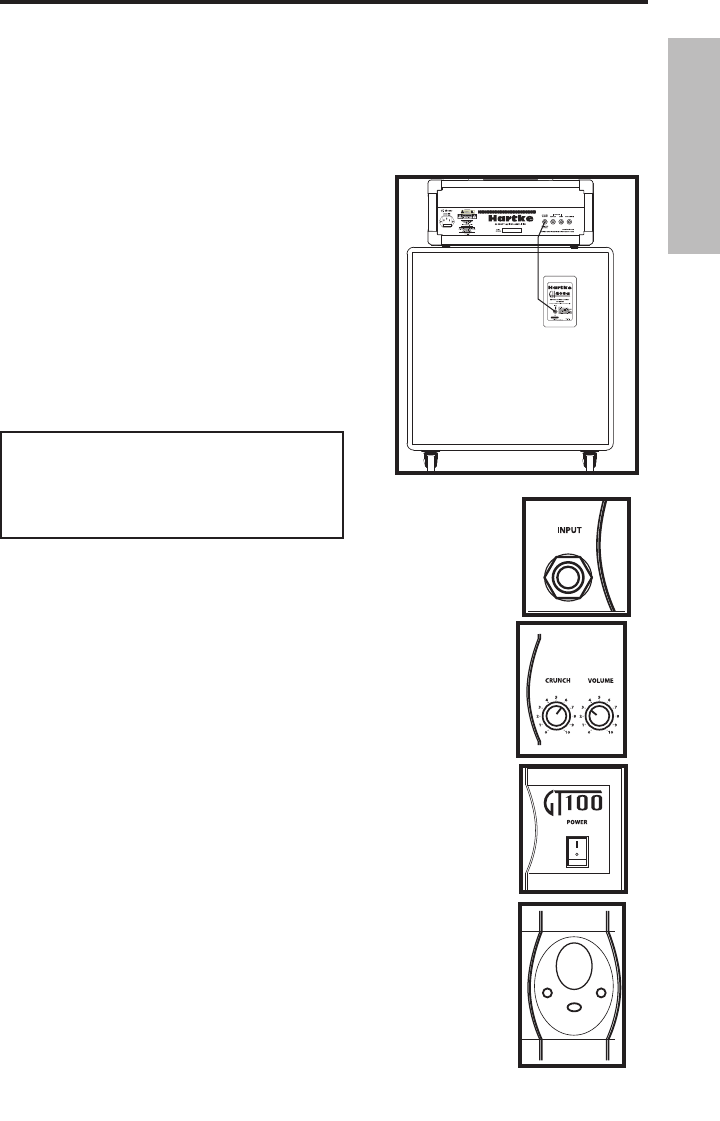
7
ENGLISH
7
Setting Up and Using Your Hartke
GT100 Guitar Amplifier
1. Remove all packing materials (save them in case of
need for future service) and decide where the amplifier
is to be physically placed. To avoid potential overheating
problems, make sure that the rear panel is unobstructed
and that there is good ventilation around the entire unit.
2. Before you plug-in the power cable, be sure the
POWER switch is in the off (down) position. Connect the
supplied power cable to the AC INLET located on the rear
panel. Then, plug-in the 3-pin AC plug into any grounded
AC socket. Don’t turn the GT Series on just yet, though.
3. If you are using the GT100 head, connect a un-shielded
speaker cable from the SPEAKER OUT located on the
GT100’s rear panel to the INPUT on the rear of the GH412/
GH412A speaker cabinet.
4. Use a standard shielded instrument cable to connect
your guitar to the INPUT jack on the front panel.
5. On the front panel of the GT Series, turn the CRUNCH
and VOLUME on CHANNEL 1, and GAIN and VOLUME on
CHANNEL 2 controls to their minimum (fully counter-
clockwise) position. Set the BASS, TREBLE and MID con-
trols to their "5" position.
5. Press the front panel Power switch in order to turn on
your GT Series amp; the switch will light up and you will
see the tube heating up through the front panel window.
6. Press the front panel CHANNEL SWITCH to select
CHANNEL 1. Note: If the footswitch is connected to the
rear panel FOOTSWITCH input jack you will need to
change the channel using the button 2 on the foot switch
and select CRUNCH off for now with button 1.
7. Set the output of your guitar to maximum and then,
while playing, slowly turn the GT Series CHANNEL 1
VOLUME control up until the desired level is achieved.
You will get a nice clean tone when using just VOLUME
(no CRUNCH) for level, so set it to the level you like.
#(!..%,37)4#(
#( #(
WARNING: The GT100 is to be used only when
conected to an 4 or 8 ohm speaker load. Use
with speaker loads of less than 4 ohms can
result in severe damage to the unit due to
excessive heat and current limiting and will


















